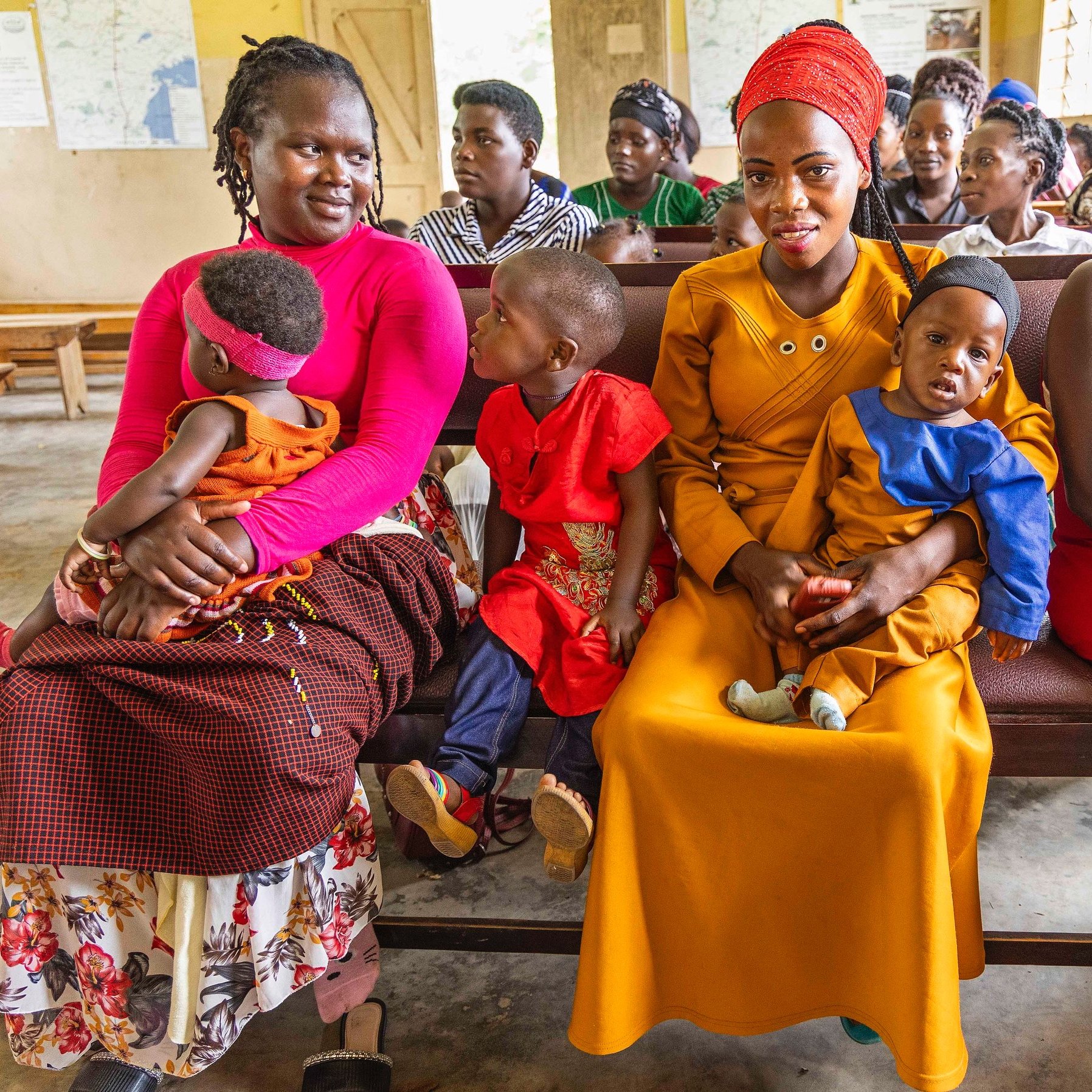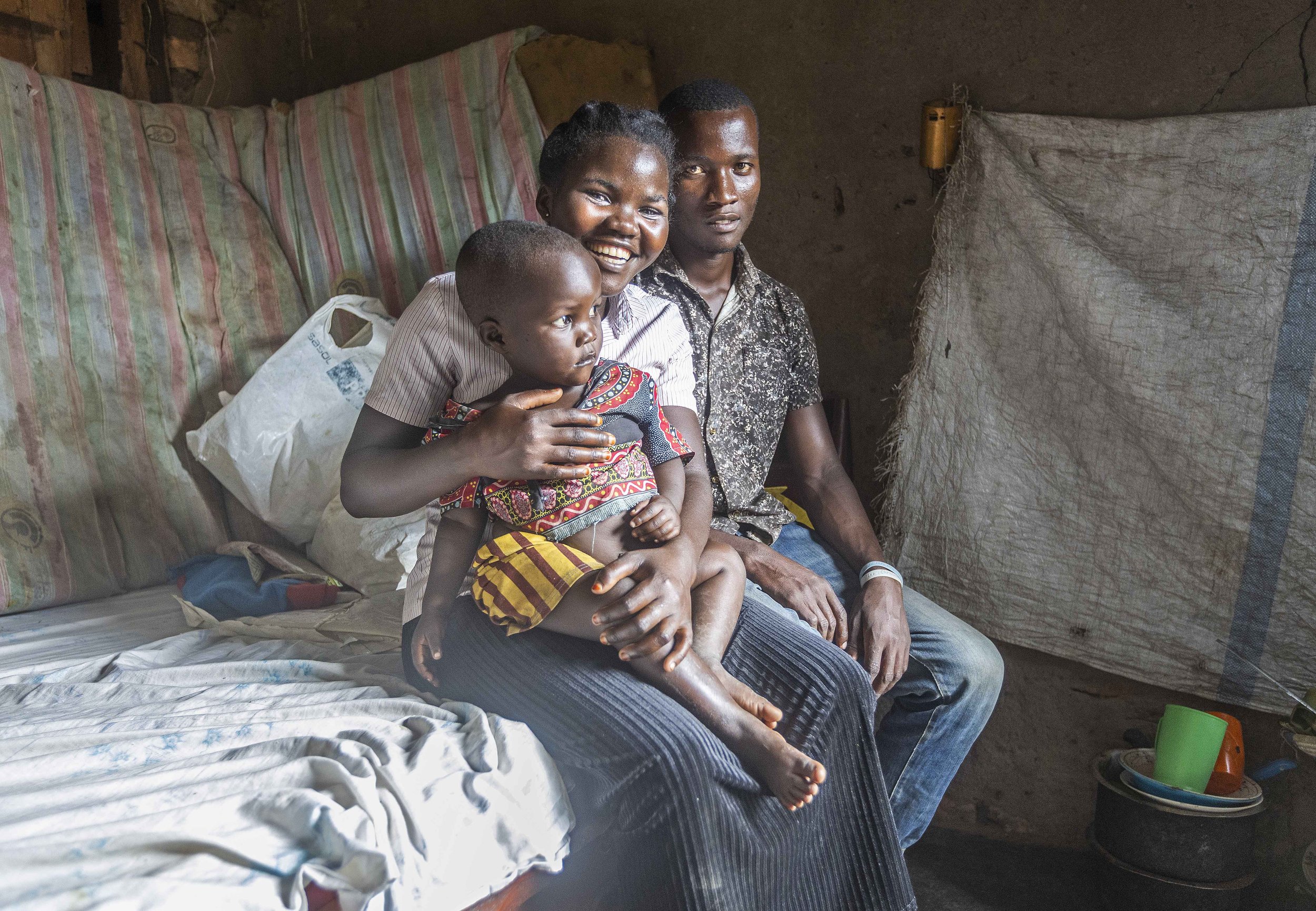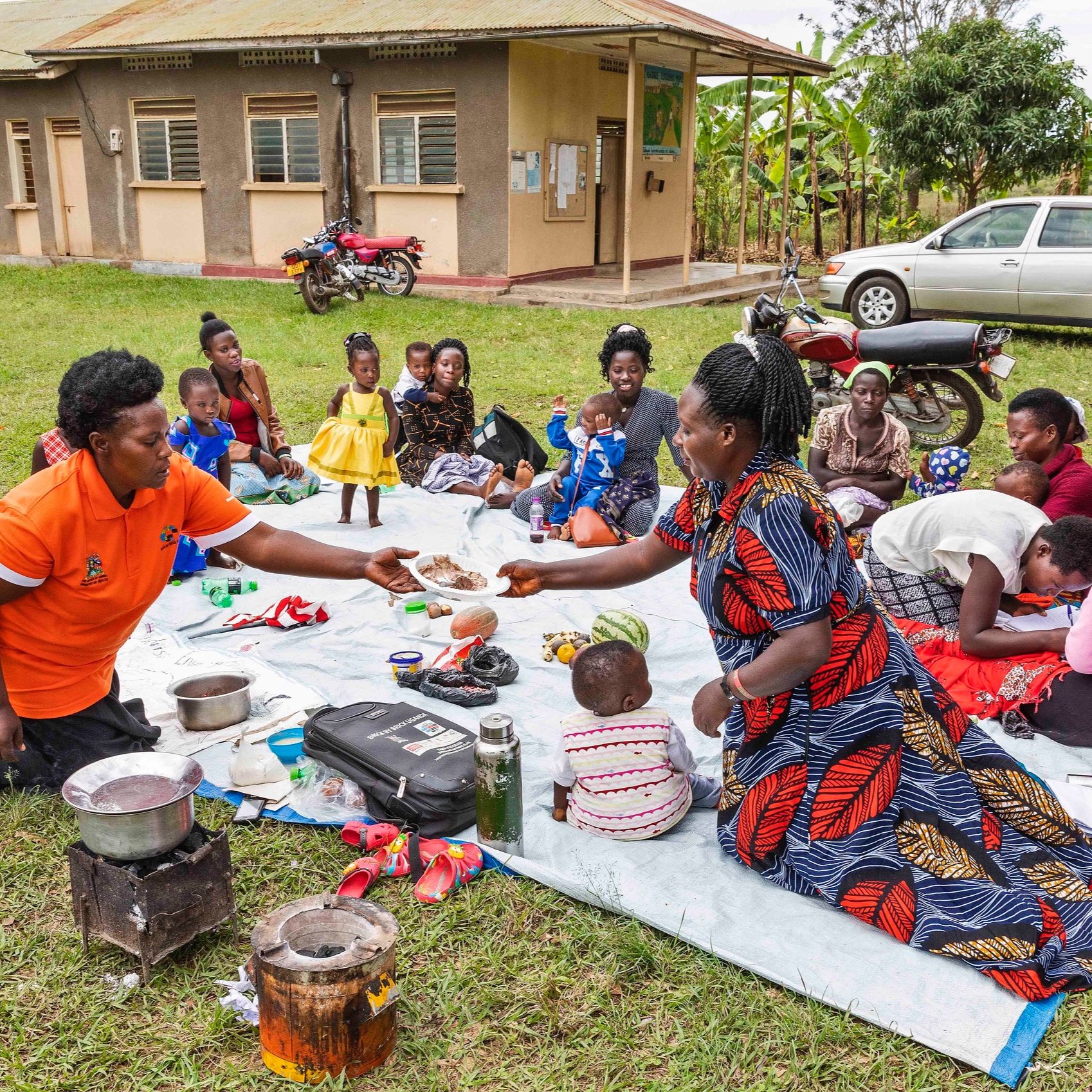
24% become pregnant before the age of 19.
As we began this program, almost 1/3 of our adolescent mothers reported experiencing acts of sexual and gender-based violence.
Our Mama Ambassador Program focuses on providing emotional support for an especially vulnerable population of adolescent mothers.
SINCE 2019, WE HAVE
Served 1,300+ adolescent mother baby pairs,
Established adolescent-friendly care at ten health facilities,
99.5% of children with normal Early Childhood Development,
Reduced SGBV incidences from 28% at baseline to 3% at 36 months.
BAMA’s Mama and Papa Ambassadors reach out to their local communities and address the first delay in decision to seek care.






MEET FLORENCE
Florence is one of our Mama Ambassador Program beneficiaries.
Listen to her story and how our counsellors and Mama Ambassadors have helped her to raise a healthy child.
THE JOURNEY OF BAMA’S MAMA AMBASSADOR PROGRAM
In Uganda 24% of adolescents become pregnant before the age of 19. Adolescents face a much higher risk of death and injury due to complications of pregnancy. In fact, these complications are a leading cause of death among women ages 15-19 globally. As we began this program, almost one in three of our adolescent mothers reported experiencing acts of sexual and gender-based violence over the past three months.
In 2019, with the support from Grand Challenges Canada’s Saving Brains Program, and the USAID-funded Partnerships Plus Program, we launched our Mama Ambassador Program, with the goal to improve the health and well-being of adolescent mothers and babies in the Rakai and Kyotera Districts. With a corps of 30 Mentor Midwives and 150 Mama and Papa Ambassadors, BAMA-trained community health workers, we provide regular peer-support parenting groups for over 1,000 adolescent mothers to improve early child development and maternal mental health.
Midwives and Mama and Papa Ambassadors are trained in adolescent-friendly reproductive, antenatal care and postnatal care, which is now available in our districts. In order to improve the quality of newborn care, we established three newborn intensive care units at our two district hospitals and one Health Center IV.
Our program focuses on providing emotional support for an especially vulnerable population of adolescent mothers. The goal of our monthly peer groups is to improve the wellbeing of young mothers and the normal development of their babies through play, communication, kangaroo care, breastfeeding and good nutrition. Our program also actively engages fathers and extended family who will support our mothers. Through our strategy of male engagement we have dramatically reduced the incidence of Sexual and Gender-based violence (SGBV).
Our goal is to integrate our proven peer-support group model into the government’s Group Antenatal and Postnatal services. We will organize our peer-support groups around these scheduled visits, adding recommended pediatric care appointments so that mothers and their children receive parenting support from birth to three years.
